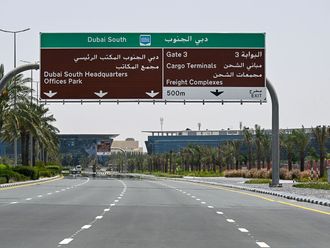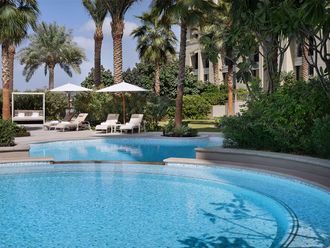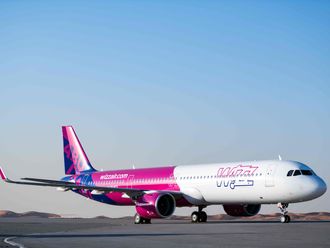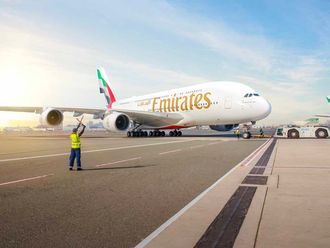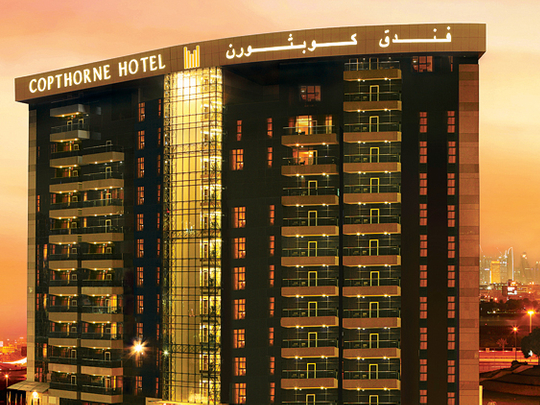
Fractional ownership isn't a particularly new concept, but it represents one segment of the hospitality market that has yet to take hold in Dubai. Nick Turner, vice-president and head of new business for The Registry Collection, Europe, concedes that the aggressive nature of Dubai's property boom initially left little room for fractional ownership: "In 2006 … the notion of selling a tower of apartments in Dubai over a period of more than 24 hours as a sales pace was unthinkable, so the idea of selling shared ownership over a period of years was almost a standing joke. The world has changed, thankfully those days of selling entire towers in 24 hours have gone, and it's my personal view that when you have quality real estate, as you do in this part of the world, and strong consumer demand, then the fundamentals are strong for shared ownership."
The Registry Collection is a subsidiary of fractional ownership industry leader RCI, which recently launched its ‘Vacation Ownership' programme in partnership with the Ivory Grand in Al Barsha. Timeshares, vacation clubs and vacation ownership programmes all offer consumers an opportunity to pre-purchase their holiday, but the mechanics of these arrangements vary between contractual obligations and actual shared ownership.
Sharia-compliant
One brighter area in the Dubai shared ownership market is found in the sale of Hissas Mushaa shares in the Copthorne Hotel in Deira, which is Dubai's first Sharia-compliant shared ownership project. Preben Vestdam, president of Valhalla Associates, which provides advisory and management services to owner Burooj Properties, is very clear about the potential of Hissas Mushaa shares: "Because this is a weekly-based product, it's not an investment product but rather designed for personal use. The more you split an apartment into number of owners/members, the less economical it would become as a pure investment product."
Factors behind success
In fact, as Vestdam explains, Hissas Mushaa's subscription level currently constitutes around "65 per cent of the hotel capacity, with 2,800 fractional owners representing 6,500 weeks annually." The success of the Hissas Mushaa subscription model could be down to its differentiation as a fully Sharia-compliant offering. Everything from the structure of the product to the accommodation, men's and ladies' pool timings, and the menu at the restaurants is Sharia compliant.
As Vestdam describes it, running a Sharia-compliant Hissas Mushaa product changes the financial responsibilities of the owner: "From a Sharia perspective, the Hissas Mushaa owners are entering into an arrangement to enjoy use of the room for a certain period of time. During this period, we don't expect them to pay for the insurance on the property or any major maintenance. So, these costs come back to the developer to take into consideration in project pricing."
The Hissas Mushaa programme, however, comes with some minor frictions. "Some of the challenges are misunderstandings. Occupancy limits don't change when you become an owner of Hissas Mushaa shares," concedes Vestdam. In improving customer's understanding of the product, Vestdam perceives an opportunity to increase its personal usage levels, thus improving revenues for participants in the rental programme; a strategy that is more viable than attracting new subscribers under current economic conditions.
Like much of the property sector, the timeshare segment appears to be waiting for market activity to catch up. Al Mohannad Sharafuddin, chairman and CEO of Arabian Falcon Holidays, a vacation ownership sales and marketing company in the Middle East, says that his firm is looking outside the UAE for future ventures: "We're looking less and less at the GCC, and had been considering Iran up until the new US sanctions were announced. Now, we're turning to Africa for future growth."
And while other fractional ownership purveyors shared similar concerns at a recent panel discussion on the subject, Vestdam offers that different stakeholders will approach the current in a manner appropriate to their fiscal concerns. "If you are a hotel investor who is considering an acquisition of a distressed mixed-use hotel and then convert its residential component into fractional ownership products, then you need to be cautious about the timing of the asset acquisition ie the time when the asset price is low but consumer confidence is improving to ensure the successful distribution of the fractional ownership product ."
Ultimately, fractional ownership is ruled by the same adages that govern conventional property. "The key success factors for fractional ownership products include luxury branding, the ability to manage the residences through the hotel operation, the uniqueness of the property itself and careful sales and marketing planning," says Vestdam. So while many Dubai-based properties are currently suffering from low occupancy, it's those properties that offer the highest quality lifestyle that can expect to fare best should fractional ownership start to build momentum in the Dubai market.


